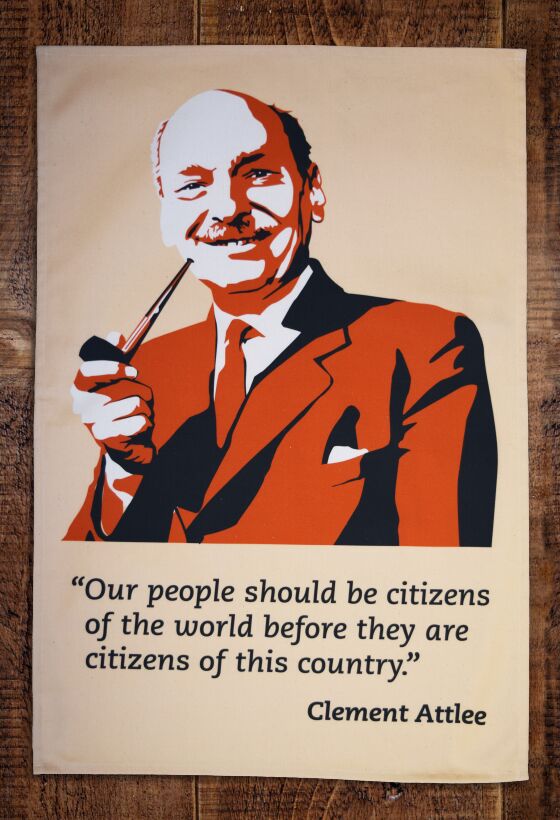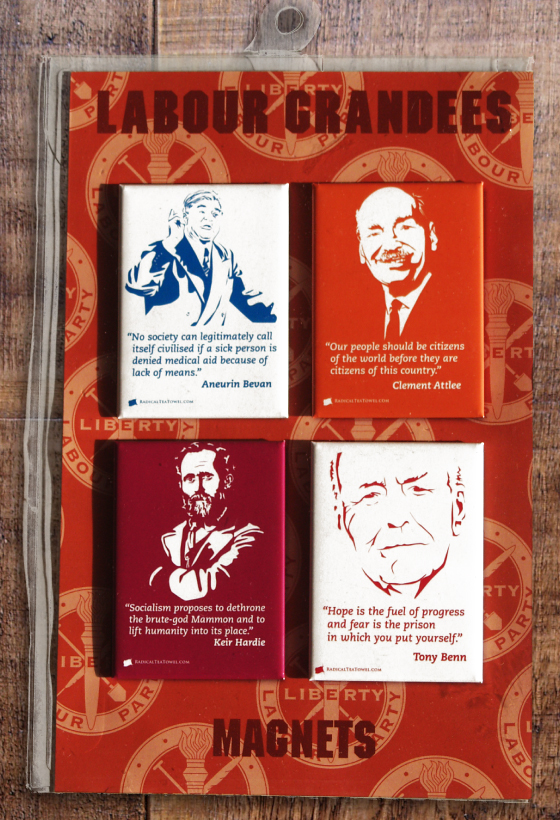Clement Attlee: the Many Faces of a Labour Party Giant
Posted by Pete on 3rd Jan 2019
Former Prime Minister Clement Attlee - 126 years old today - is lionised in Labour circles. In truth he was a mixed bag - who nonetheless compares very well to other political figures of his era.
It was often said of the old Labour PM, Harold Wilson, that he had 'Twelve Faces'. It was a comment on how he presented many different versions of himself depending on who he was talking to and what they would like to see.
Though perhaps not as self-consciously, other Labour leaders have also had multiple 'faces'.

Clement Attlee, for example, who was born today back in 1883.
An Imperfect Giant of the Labour movement
'Clem the Gem' has become something of a Holy Grail in the history of the Labour Party, thanks in large part due to the enduring sheen of his 1945-51 government.
The Knights Errant of Labour Left and Labour Right have been trying to grab this Holy Grail from each other for decades, to use in their debating arsenal - 'Clem would've been with us,' they want to be able to say.
Sometimes, that's an outright lie. But it's hardly any better to produce a historical reflection on Attlee's life which just leaves out the bits which our view of Labour politics doesn't favour.
There is plenty to Attlee (or 'plenty of Attlees') which I personally don’t like at all, and I’m more than happy to berate him for that!
As a young student, Attlee was a Rudyard Kipling-loving imperialist - an eager supporter of the Boer War and Empire.
And this wasn't just the foolishness of an establishment youth - in 1939, Attlee stood by while those advocating a 'Popular Front' with other left wing parties in order to combat the rising threat of fascism - including Nye Bevan and future Chancellor, Stafford Cripps - were temporarily hounded out of Labour by elements on the party right.
Attlee also did nothing in his role as wartime Deputy Prime Minister to oppose the arbitrary arrest in 1942 of Gandhi, Nehru, and other anti-colonialists who had been eager to support the war against fascist Germany on condition that Britain would end its racist Empire in India.
And finally, it was Attlee who illegally ordered the development of a British A-Bomb without consulting Parliament - which led to decades of anti-nuclear activism, from Aldermaston to Greenham Common.
This all being said, there is a fair bit about Clem Attlee for which I've got massive respect.

Above: the faces of some Labour greats - click here for the Labour Grandees fridge magnet collection
Labour's best loved figure for a reason
In the early 1900s, for example, before he'd begun his political career, Attlee worked as a social worker in the East End of London. He took from this experience a crucial lesson - socialist restructuring of society, not self-satisfied charity, was the proper response to poverty.
A little later, as Mayor of Stepney in the early 1920s, Attlee routinely took radical action in defence of London's working class. In 1921, he joined his neighbouring Mayor and friend, George Lansbury, in the 'Poplar Rates Rebellion' - whereby Labour councils refused to collect taxes until the London system was reformed to be less prejudiced against working class areas.
Attlee joined Stafford Cripps' Socialist League, albeit briefly, in 1932 - an organisation within Labour advocating a radical socialist programme upon election with which to confront the entrenched forces of British capitalism and aristocracy.
And there was also Attlee the Spanish Republican who, while Tories like Anthony Eden and Neville Chamberlain wined-and-dined Franco's Nazi allies, visited Spain in 1937 (with Ellen Wilkinson MP) to demonstrate the support of British socialism for the beleaguered people of Spain.
Attlee went to the front line of the fighting to meet the British Battalion of the XVth International Brigade - a unit of foreign volunteers in Spain fighting fascism. Afterward, they renamed themselves the 'Major Attlee Battalion' (Clem was known by some as 'Major' from his service in WWI).
Attlee: a man worth remembering
Labour's best loved Prime Minister, then, was something of a mixed political bag made up of a scattering of moments - plenty good, plenty bad, a few of them - his actions during the Suez crisis for instance - brilliant.
Now, I could see this complexity, pick out the acts and ideas I approve of, then draw as continuous a ring as possible around them and call everything inside it 'the Clement Attlee'.
But that would be a conscious misrepresentation.
Instead, I'll just say three things.
One: while not letting him off the hook, Attlee was deeply human in this mixing of the reactionary with the progressive. It's always harsh to expect perfection.
Two: insofar as political mixtures go, his is certainly one of the better ones to be found in mid-twentieth century front line politics - remember, he shared cabinet rooms with questionable characters like Winston Churchill and Ernest Bevin!
And three: Happy Birthday to him! He is 126, after all.
